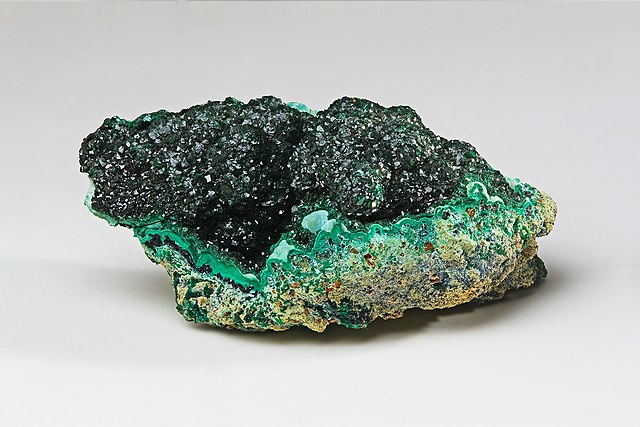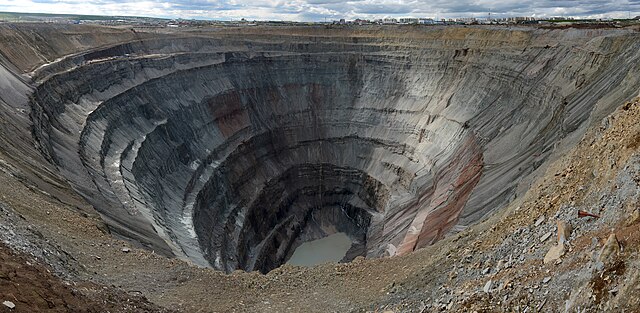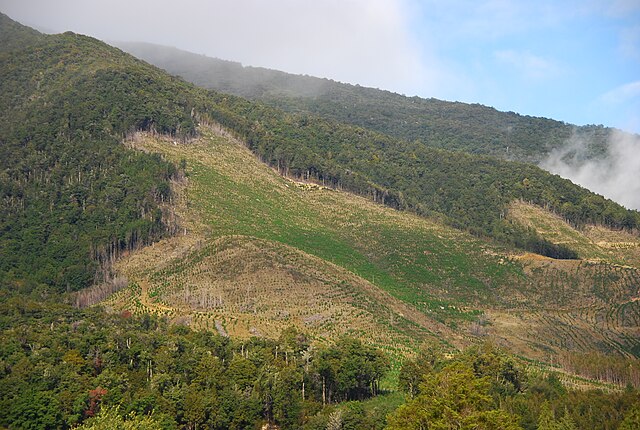Mining is the extraction of valuable geological materials and minerals from the surface of the Earth. Mining is required to obtain most materials that cannot be grown through agricultural processes, or feasibly created artificially in a laboratory or factory. Ores recovered by mining include metals, coal, oil shale, gemstones, limestone, chalk, dimension stone, rock salt, potash, gravel, and clay. The ore must be a rock or mineral that contains valuable constituent, can be extracted or mined and sold for profit. Mining in a wider sense includes extraction of any non-renewable resource such as petroleum, natural gas, or even water.
Mining of sulfur from a deposit at the edge of Ijen's crater lake, Indonesia.
Malachite
Agricola, author of De Re Metallica
Gallery, 12th to 13th century, Germany
Extractivism is the removal of natural resources particularly for export with minimal processing. This economic model is common throughout the Global South and the Arctic region, but also happens in some sacrifice zones in the Global North in European extractivism. The concept was coined in Portuguese as "extractivismo" in 1996 to describe the for-profit exploitation of forest resources in Brazil.
Example of extractivism: open-pit mining in Russia
Example of European extractivism: a quarry in the Apuan Alps, Italy. No Cav is an anti-extractivism movement fighting against this activity
Devastation of the jungle by Moritz Rugendas, 1820 (Brazilian Romantic painting)
Example of mass extraction of trees for lumber, resulting in deforestation








